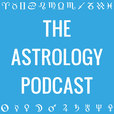
Summary: <br> <br> In episode 148 of the podcast Keiron Le Grice joins the show to talk about Carl Jung's theory of synchronicity, and its applicability to astrology as a possible explanatory mechanism.<br> <br> Keiron is the author of the recent book <a href="http://amzn.to/2tU00tz" target="_blank" rel="noopener">Jung on Astrology</a>, which was discussed in <a href="http://theastrologypodcast.com/2018/01/29/carl-jungs-views-and-influence-on-modern-astrology/" target="_blank" rel="noopener">episode 141 with his co-author Saffron Rossi</a>, as well as the book <a href="http://amzn.to/2HFppcy" target="_blank" rel="noopener">The Archetypal Cosmos</a>.<br> <br> In Jung on Astrology Keiron identified seven distinct theories of astrology that Jung entertained during the course of his life, and in this episode we have a wide-ranging discussion about Jung's views on each of these possible mechanisms.<br> <br> Keiron is a professor of depth psychology and archetypal cosmology, and chair of the Jungian and Archetypal Studies specialization at Pacifica Graduate Institute.<br> <br> For more information about his work see his website <a href="http://www.keironlegrice.com" target="_blank" rel="noopener">www.keironlegrice.com</a><br> <br> Below you will find the show notes, which contain some of the points we touched on in the episode, followed by links to download or stream the recording of the discussion.<br> Show Notes<br> <br> * Introducing Keiron and talking about his background.<br> * What is synchronicity?<br> <br> * Meaningful coincidence.<br> * Of subjective and objective happenings.<br> * An acausal connecting principle.<br> * Golden scarab beetle story as paradigmatic case of synchronicity.<br> <br> <br> * Characteristics of a synchronistic experience:<br> <br> * Meaning, coincidence of inner/outer, improbable, uncanny, archetypal, numinous, purposive, acausal.<br> <br> <br> * Why is synchronicity important? Demonstrates the following:<br> <br> * Meaning exists outside of human consciousness.<br> * Relationship between mind-matter, psyche-cosmos may be more fluid.<br> <br> <br> * Synchronicity as a guide to individuation. Finding the self.<br> * Synchronicity as applied to astrology.<br> <br> * Generally a modern reformulation of/replacement for theory of correspondence<br> <br> <br> * As contrasted with causal influence of the planets.<br> <br> * Causal conceptualization had been dominant since Ptolemy in 2nd century.<br> <br> <br> * The place of synchronicity in Jung’s explanations of astrology<br> * Jung’s entertained multiple explanations of astrology.<br> <br> * Up to seven possible explanations, with some overlap and contradictions.<br> * Each examined in seven sections in Part IV of Jung on Astrology.<br> <br> <br> * 1) Sympathy of all things, microcosm-macrocosm correspondence.<br> <br> * As above, so below.<br> * Mirroring<br> * Common in esoteric thought, but also Stoicism.<br> * Incorporates world soul idea. Anima Mundi.<br> <br> <br> * 2) A projection of the collective unconscious into the heavens.<br> <br> * Comes up especially in his works on mundane astrology.<br> * Partially derived from his conclusions about precession.<br> * Astrological meanings come from archetypes in the unconscious psyche.<br> * Implies that the astrologer is working under a bit of a delusion.<br> * Runs into an issue with whether the unconscious is purely internal or external.<br> <br> <br> * 3) Divination.<br> <br> * Largely comes from his failed statistical experiment on synastry.<br> * Initially he thought it was causal, but later decided he had influenced the outcome<br> * Maggie Hyde’s Synchronicity I and II from Jung and Astrology.<br> <br>
